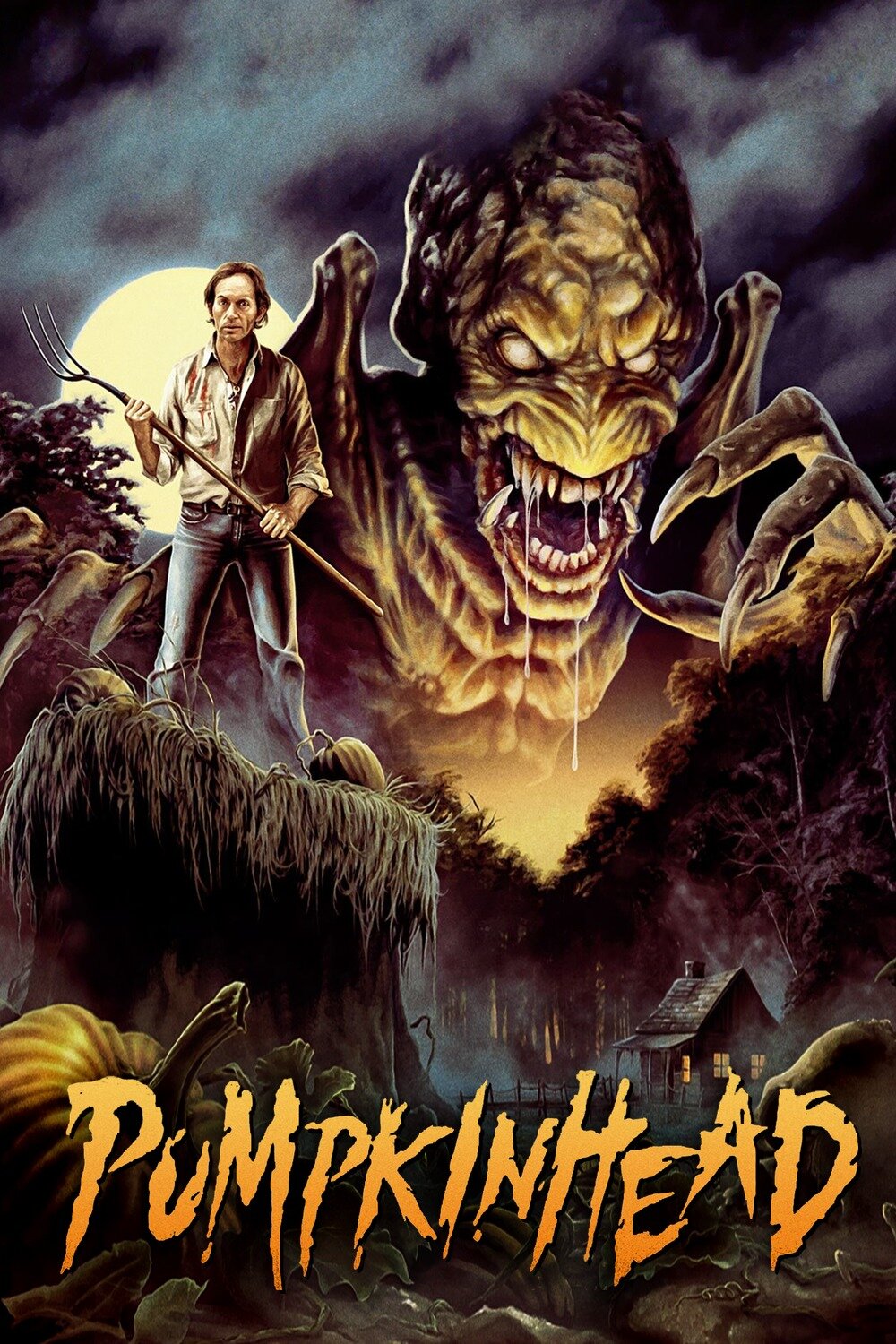Nature manifests its horror script through biology: old age, disease, and death. Camille Paglia is right to name biology the real fascist ruler of mankind. Added to nature’s brew are the conscious decisions made within the human heart—jealousy, revenge and murder.
Thankfully, we have art, and on the sunny-side of the street stands the movie theatre.
In Shakespeare we watch Macbeth’s unbridled ambition and jealousy destroy everything he loves until he reaches this terrible conclusion: “Life’s but a walking shadow, a poor player, that struts and frets his hour upon the stage and then is heard no more…” This downward spiral, falling through time and space in madness, is not unlike many of Edgar Allan Poe’s works, such as, “The Tell-Tale Heart” and “The Fall of the House of Usher.”
As much as I enjoy books for delving into tales of horror, the cinema is a stunning medium for this genre. One of my favorites is the 1988 horror film Pumpkinhead, which joins good storytelling with the darkness of revenge.
Actor Lance Henriksen gives weight to this campfire-style story of a man seeking revenge for the death of his son. City slickers, Appalachian folks, a nasty pumpkin patch right out of a Tim Burton movie, and a timeless witch, propels the story through one man’s dark journey of revenge.
Henriksen’s hatred brings the creature alive with the help of his own blood and that of his son’s. The monster arrives in every scene accompanied by a mad wind and shafts of moonlight that cuts through the darkness with the power of the monster’s claws.
But if this horror movie is not your cup of tea, perhaps too Hollywood, I suggest Akira Kurosawa’s Throne of Blood, one of the best film versions of Macbeth I’ve ever seen.
Besides looking long and deep into the darkness of the human heart, Shakespeare also entertains us along the way with some very scary witches. Happy Halloween!



Comments
2
Leave a Reply
Macbeth (or “The Scottish Tragedy” if you are superstitious) was Lincoln’s favorite play; he could quote it at length from memory. He wrestled with himself over whether his ambition, such as it was, would yield good fruit or evil. This is why he refused to ride roughshod over the broken body of the Confederacy, but instead, as he put it using a wrestling metaphor, “let ’em up easy.”
David, thanks for the response and enlightening me about Lincoln’s appreciation of Shakespeare. The great poet/writer makes us all take notice of our ambitions and what path we decide to walk down. Sterling Professor Harold Bloom says an awful lot in just the title of his 1998 book on the Bard of Avon–Shakespeare: The Invention of the Human.